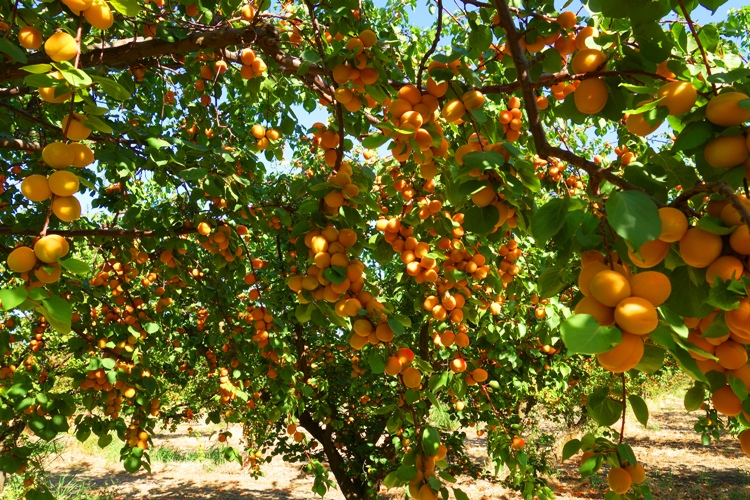Jesus
Desired Their Good
Stephen
Terry
Commentary
for the August 13, 2016 Sabbath School Lesson
 “Jesus went through all the towns and
villages, teaching in their synagogues, proclaiming the good news of the
kingdom and healing every disease and sickness. When he saw the crowds, he had
compassion on them, because they were harassed and helpless, like sheep without
a shepherd. Then he said to his disciples, ‘The harvest is plentiful but the
workers are few. Ask the Lord of the harvest, therefore, to send out workers
into his harvest field.’” Matthew 9:35-38, NIV
“Jesus went through all the towns and
villages, teaching in their synagogues, proclaiming the good news of the
kingdom and healing every disease and sickness. When he saw the crowds, he had
compassion on them, because they were harassed and helpless, like sheep without
a shepherd. Then he said to his disciples, ‘The harvest is plentiful but the
workers are few. Ask the Lord of the harvest, therefore, to send out workers
into his harvest field.’” Matthew 9:35-38, NIV
One of the joys I have in life is to taste a sweet and
juicy apricot plucked fresh from the tree on a hot summer day. For this reason
I have planted two apricot trees in our backyard. This year was such a
bountiful harvest that a few limbs were lost that could not handle both the weight
and the fury of summer storms. But the branches that remained were loaded with
soft, plump fruit. We harvested the fruit three or four times as all of the
apricots were not ripe at the same time. When they were, they would practically
leap off of the branch into my hand. Others would look ripe, but when I went to
pluck them, they clung stubbornly to the branch, refusing to leave their leafy
abode. Therefore they were allowed to remain to continue to ripen for a later
harvest. I knew that no amount of forcing would give me the tasty fruit I
desired. It they were picked too soon like so much of the fruit in our grocery stores,
they might eventually appear ripe but they would never have the flavor of tree-ripened
fruits. Unfortunately, some would ripen while I was away for the day and with
no harvester to pluck them, they had only the wind to bring them to the ground
where other creatures could savor their sweetness. This is nature as it was
meant to be, whether tree or man, blessing all by sharing whatever has been
granted to us to provide.
Most of those apricots from our little tree (only one
bore fruit this year) went into several containers of freezer jam. One batch
was apricot jam, and one batch was apricot, pineapple, and banana jam. I have
found freezer jam, as opposed to cooked jam, brings out more of the fresh flavor
of the fruit. I like honey on sourdough English muffin toast in the mornings,
but the taste of freezer jam is so much better even than honey. And it has been
a blessing to share some with neighbors as well that they might enjoy the apricoty goodness. In doing all of this, I have learned
several things about God and His interaction with us. I learned how much He
desires good for us and through us for everyone else. It is God’s plan that in
blessing us, He blesses our neighbors, and in His blessing of our neighbors, He
blesses us as well. He intends for the circle of blessing to be ever spinning,
filling the world with good.
I have also learned something about the gospel
commission[i] which tells us to reach
the lost with the good news of salvation through Jesus. All too often the
church has interpreted that as a command to engage in public debate with as
many people as possible in order to persuade them by the power of reason to
surrender to the rule of God, (or at least to the rule as interpreted by our personal
denomination). Whether through one-on-one personal encounters and Bible studies
or expensive multi-media evangelism efforts with polished professional speakers
that draw people by the hundreds or even thousands, they all tend to distill
into presenting a list of arguable points and then using the power of
persuasion to win the debate on point after point, leading to the desired
conclusion – baptism into the church. Then like a championship football team,
we move on down the road for that battle has been won and we need to find new
opponents. What happens after that is not our concern as it has already entered
the record books as a win. Small wonder that once the professionals have left
the field, the home town team has rather limited success in retaining those
bewildered souls left on the steps of the narthex of the church.
These individuals may be like fruit that has been picked
too green. Rather than allowing the fruit to ripen in due course, limited time
engagements and the pressure for adequate baptismal statistics can mean that
each point presented to them is like another tug on the fruit that finally,
with each succeeding tug, manages to separate the fruit from its branch. The
greener the fruit, the greater the effort required to achieve that result. But
not to be deterred, we pursue that fruit with a singleness of purpose that
would do honor to the hounds of heaven. Then if we are successful in retaining any
of those harvested souls, we set about making them equally dedicated to
persuading others to join our band. They may be pre-ordained to fall away,
however. Such green fruit has a challenge to assimilate with those who have already
ripened. Expecting others ripe like themselves, the existing church members may
be put off by the tartness of these green newcomers. It may not have to be like
that though.
What would it be like if instead of trying to compel every
green fruit to be picked and assimilated, we concentrated our efforts on discovering
the already ripe fruit and harvested that? What if instead of dedicating thousands
of dollars and weeks, months, and years of effort convincing those who do not
see a need to come to Jesus, we sought those who already recognized they needed
something better than what they are currently pursuing? Why do we insist on
working with an unripe harvest instead of reaping what is already ripe? How many
ripe fruit fall to the ground simply because there is no one present to harvest
it? God places mankind in the world, then the Holy Spirit nurtures each until
they are ripe and ready for the Kingdom of God. We are each given the privilege
of welcoming them into fellowship. What a blessing that is for all concerned.
With our present course, we see a small trickle of souls
come into the church in North America, and many of those soon leave again.
Witnessing that, we become discouraged and soon become resigned to warming a
pew rather than warming hearts with the message of Jesus. We try so hard to win
those who do not really desire to be won that evangelism fatigue can set in. No
one benefits when fighting battles that do not need to be fought. Instead we
need to locate the fruit that is shouting “I am ripe. I need to be picked!” But
how do we find the ripe fruits, when there are so many that seem like such good
candidates, yet are not. Perhaps we need a change of heart and the change of
perspective that will bring.
We need to replace a desire to win souls with a desire for the good of others. What
does that mean? We may understand that better if we ask ourselves “How do we
know when others desire our good?” Isn’t it when they show not just an interest
but an active involvement in assisting us with the various problems and
challenges we all face? For instance, who really desires our good, the person
who says they will pray for our situation when our only car breaks down, or the
person who volunteers to provide transportation to run for repair parts to fix
the vehicle or other important trips while the vehicle is being repaired? Or
even better, the person who prays but does not leave those emergent needs
unmet. If we only pray and do nothing to help, we may be allowing ripe fruit to
fall to the ground simply because we chose not to be involved.
It is important though that we realize that Jesus did not desire good for
everyone in order to win them to the church. He desired it because He truly
cared. In other words, people were drawn to Him not because He was good at
manipulating their perceived needs for His own ends. Jesus was no demagogue.
They were drawn to Him because they could tell that He genuinely loved them and
cared about them. If we take Jesus into our hearts, we will truly love and care
about others as well. Life will no longer be a quid pro quo. We will do things for others because we genuinely
love and care about them, and we will do so even if they hate us.[ii] That kind of love is what
drew us to love God in return. Now we have the blessed opportunity to share
that kind of love with others and in so doing, help them to love God as well.
That will complete the circle of love that was created by God in the beginning,
but has become broken as we have forgotten to desire the good of others.
Perhaps it is time we begin to take part in healing the brokenness.
